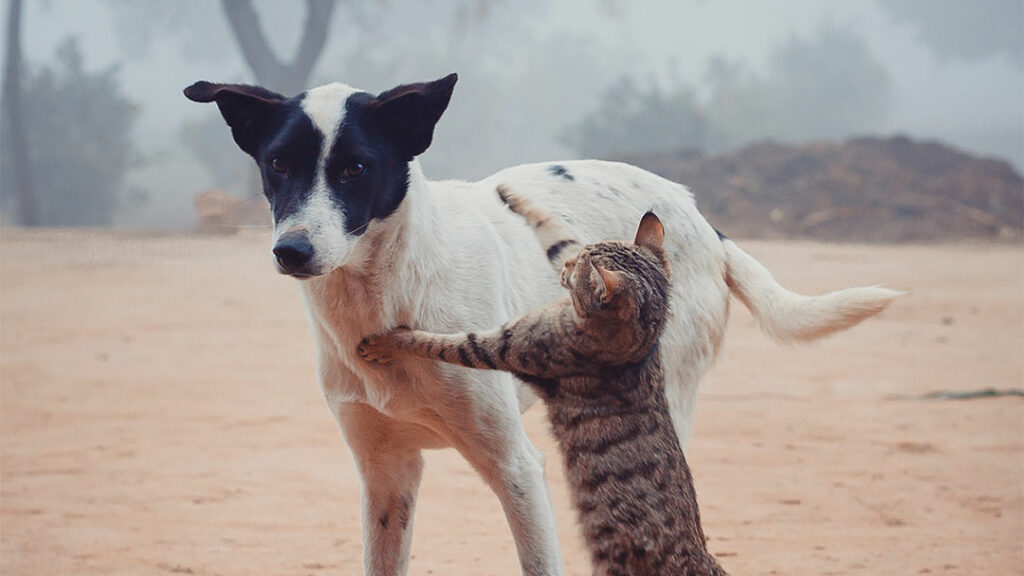When you think of the phrase “desperate housecats,” you might think of a dramatic sitcom, but this phrase is not that far from the truth for millions of indoor cats. Hidden behind closed doors, beyond the hunting grounds of the wild, many of these housecats live in boredom, frustration and stress — emotions too often ignored by their human companions. This emotional disorder can manifest as: unnecessary grooming, destructive clawing, and even aggressive behaviour. What makes house cats feel “desperate” is the key to creating a more enriching home life for them.
What Does It Mean to Be a Desperate Housecat?
Desperate housecats are not necessarily physically imperilled.They result from unfulfilled emotional, mental, or physical needs. Pet cats, however fussed over and kept in, are still descended from wild ancestors that hunted, climbed, roamed and created territories. Even cats may become anxious or depressed when cooped up in a home that doesn’t allow for their feline instincts.
Despair in housecats can bear strange and infuriating fruit: escaping through half-open doors over and over, howling at night, peeing around the house or picking fights with housemates. This is their cry for help, a sign that something is not right in their world.
Common Triggers for Feline Frustration
The reasons for desperate housecat angst are numerous, but several things will make for a stressed or sad cat.
Lack of Stimulation
Cats are instinctive hunters and explorers. A cat’s brain, when trapped in a house with none of the freshness of the outside world, with nothing new to sniff or prowl, begins to atrophy. Peering out the window and playing with the odd toy just doesn’t always cut it. Cats get a bit lethargic or grumpy if they’re not able to use their senses.
Poor Environmental Setup
Space is crucial. The hamster needs a space more than just to live in, and without vertical climbing, hiding or taking rest, can lead to stress in hamsters. Cats long for sanctuaries of their own. Even when you have more than one cat in your home, territorial competition can be a cause of anxiety.
Social Isolation
So, despite their aloof reputation, many cats are really social. If left alone for long stretches of time with minimal interaction — human or other animal — they may become depressed. Attention-seeking acts such as knocking items over or meowing non-stop, can also be a plea for companionship.
Inconsistent Routines
Cats are creatures of habit. The sudden change of a new routine, moving home, addition of a new family member or pet could unsettle your cat. That insecurity often translates into behavioural issues as they try to establish control or express distress.
The Emotional Toll of Indoor-Only Living
Many times, it’s just safer to keep cats indoors, particularly in cities. But indoor-only living can be dull and frustrating when it’s not well handled. It can eventually wear on a cat’s state of mind.
Desperate housecats might also develop obsessive habits (like tail-chasing or compulsive grooming) much the same way some humans with anxiety will bite their nails or pace. Others tend to withdraw, take cover under the furniture or refuse to eat. These precursors should not be ignored, as they are a warning sign that a cat’s needs remain unfulfilled.
Solutions for Soothing the Desperate Housecat
There’s good news: With the proper tweaks to environment and care, even the most stressed-out housecat can find his way back to happiness and contentment.
Enrichment Is Everything
One of the best ways to fight feline desperation is with environmental enrichment. The addition of cat trees, tunnels, puzzle feeders and safe windowsill perches can completely change the experience a cat has in its home. Rotating toys and introducing new scents or textures also add interest to a busy mind.
Schedule Interactive Play Opportunities
Housecats require exercise and human interaction. Ring-fence some time every day for structured play with toys that simulate prey, like feather wands or laser pointers. This is not only exercise, but it also fulfils their predatory desire and strengthens the human/animal connection.
Provide Safe Zones
Every cat needs its retreat. Here, whether it’s a cosy box in the corner, a high shelf or a soft cave bed to curl up in, these safe spaces mean you are less likely to need to find a lost cat and more likely to be able to allow your cat to walk indoors away from danger. This is particularly important in multi-pet households, where rivalry for resources can cause tension.
Keep It Routine and Predictable
Their feeding, playing, and even cleaning schedules need to be the same. Predictable environments are calming to cats. They’re trained to predict activities and trust in their environment, which makes them behave more confident and relaxed.
When to Seek Professional Help
Unfortunately, you may find that your housecat is still stressed and/or desperate to break free despite your best attempts at calming. If this goes on for a little while, you may need to take him to the vet for a checkup to make sure that nothing else is going on. There are those moments when an alteration in behaviour can be related to pain, illness and being elderly.
Assuming there isn’t an underlying medical problem to address, a certified animal behaviourist can help to decode your cat’s behaviour and provide customised strategies that can make a big difference. Drugs, while seldom the initial choice, can also be considered in severe cases of anxiety or compulsive behaviour.
The Reward of Understanding Desperate Housecats
The rewards are spectacular whenever cat owners take the time to get to know and respond to their cats’ emotions. A formerly shy or aggressive cat might become affectionate, playful and peaceful. Trust is built, and the household is a happier place for all.
Living with cats should not be a test of wills. But when we look at problem behaviour as communication rather than insurrection, we can look at our feline friends in a different way.
In the end, the term “desperate housecats” offers a subtle nudge that reminds owners that even the most pampered pet is driven by instincts formed by a long history of shape-shifting evolution. Having those needs met through understanding and creativity means that you’ll give your cat a better life and have a richer and more satisfying relationship with them in return.
Conclusion
Desperate housecats aren’t misbehaving in a fit of pique — they’re expressing unmet needs that normally escape attention in the quiet routine of indoor life. These sensitive, bright creatures do best when their environment provides them with both stimulation and comfort, while fostering their instincts. We can also turn desperation into contentment by simply identifying the signs of desperation and finding purposeful ways to enrich our world. Whether through toys, adventure or just by being there, everything we do has an impact, and we can use our superpowers to make our cats much happier. Comprehension and empathy are the keys to opening the door to a happier, healthier life for the housecats who rely upon us daily.



